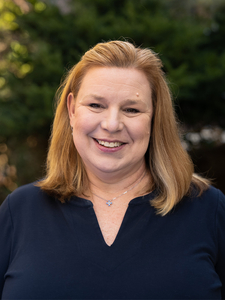Transcript
Abusive people possess a gift for creating allies and bringing people to see their point of view and to get them to do for them what they want accomplished. And I think that's a really important principle to understand, that people who are controlling their spouse don't necessarily want a better marriage in the way that we would want them to have a better marriage. They don't really share our goals. What they really want to do is remain in control.
And I remember as a young counselor, this happening to me. Some husbands would come in to me for counseling, marriage counseling, and they were highly directive. They were saying to me, "My wife needs to communicate better. She needs to respect me more." And they were bringing me books and they wanted me to do their bidding in the counseling room. And when I resisted that, I got some pretty strong pushback.
But I think they were thinking they were going to be able to control the narrative, control the setting, and control my counseling. And I see that happen a lot in the church, unfortunately, because oppressive are such good communicators and they're very gifted at creating these allies. One of my counselee recounted it like this. She said, we'd go to my pastor for counseling, and she would hear from her pastor, "Your husband just wants more love and affection. You just need to sleep with him more often and be more excited." And she was just devastated. And she painted this really helpful picture to me. She's like, "Darby, it was like my abuser was standing behind my pastor holding his arms and hitting me with my pastor's arms." And none of us want to be in a position where someone is vulnerable and being harmed, and we are allied with their oppressor, affording for their oppressor what the oppressor wants.
And in that case, he wanted more sex. And the pastor was saying, "You have to provide your husband more sex." And so I think it's really important that we are not manipulated by oppressors. It's key actually to understand. And so there's just some things you can do to not be manipulated. And the first is just to educate yourself on abuse, right? Oftentimes we have misconceptions about abuse. We're ignorant about how coercive control works. And if that's true of you, you're going to be a lot easier to manipulate. You probably are going to hear an oppressor talk about themselves as the victim and painting their spouse as this horrible human being. And you as an empathetic person are going to go along with our narrative without asking questions and finding out more information. Another thing you can do is just talk to the victim about what you're hearing, to clear up any inaccuracies.
If you're not involved with the victim, it's just something that's happening in your church and an oppressor is coming up to you and giving their side of the story, talk to someone in church leadership who is. Don't let one spouse manipulate you and vilify their spouse and tell you stories without verifying what's happening. Also, if you are involved directly in that care, you want to make sure you're the one making the decisions about how a process will go. Just like as a young counselor, those husbands coming in and directing me, I often had to say to them, well, this is how we work. This is how counseling works. These are my counseling goals. Pastors often will be told by an oppressor, "I won't meet with this elder," or "I'm not going to go for counseling because I don't believe in counseling." And again, it's the oppressor's way of controlling the process.
And so if you're in church leadership or an elder or a counselor, you want to be the ones making the decisions and leading the process and not being controlled by anyone that you are trying to minister to. And I think lastly, it's just really important to close the information loop if there's so much deception. And often oppressors believe that they are the victims. They truly believe they're being mistreated. It's really easy to get caught up in the narrative. And so you want to make sure if this elder's speaking with the victim, and this one's speaking with the husband, that they're closing the information loop and learning about the details so that everybody has a fuller story. And it's harder to manipulate when everybody knows that's going to happen. And so the other thing I would say is limit who the oppressive person can talk to, right? If you're a church leader, you're going to be saying things like, "These are your support people." You don't want them talking to 25 people in a church and telling different things. And then that's another way that you can limit an oppressor's ability to manipulate.


